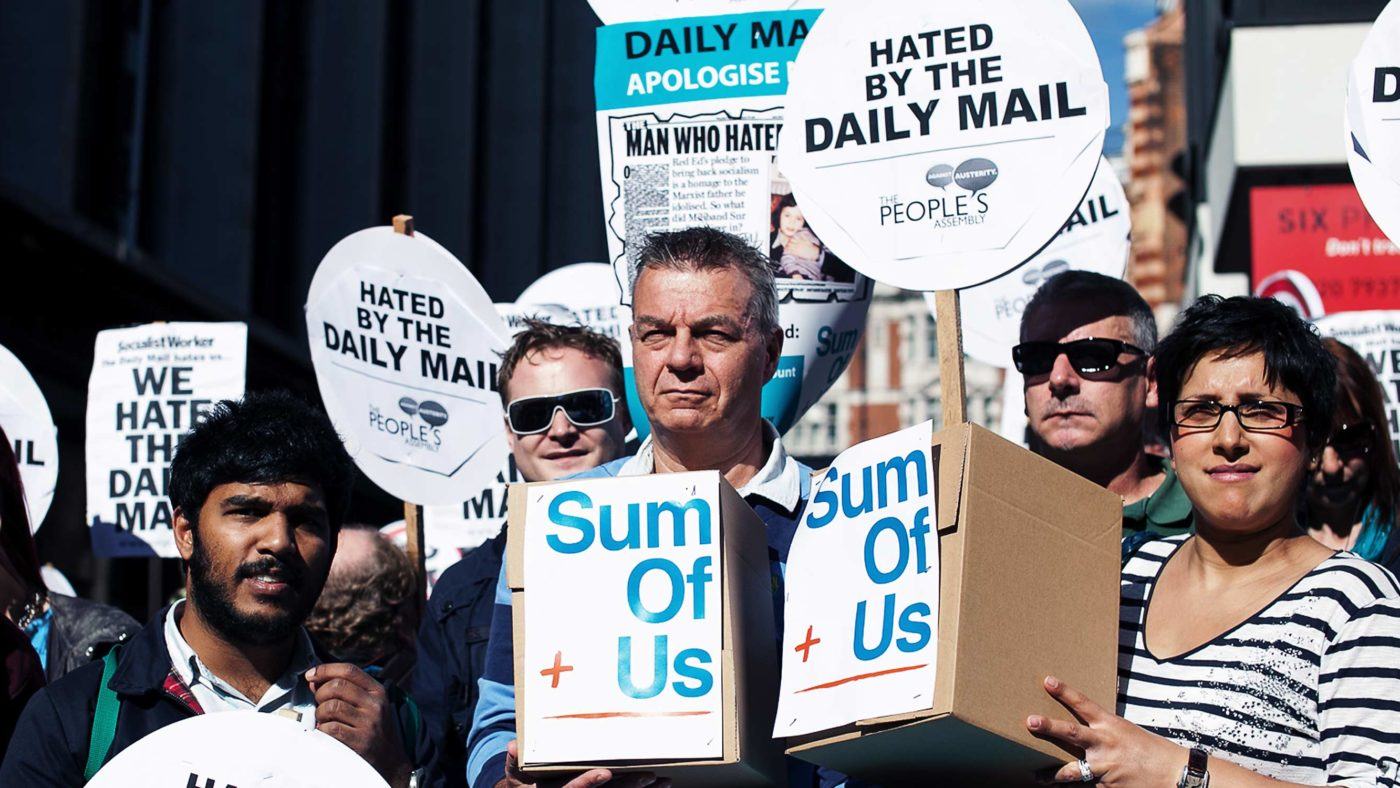After the seismic events of last year, people are taking a greater interest in serious current affairs.
Here in the UK, for example, the Economist, New Statesman and Spectator have enjoyed increased year-on-year sales, even as the circulation of celebrity magazines and women’s weeklies is in decline. Radio 4’s Today programme has recorded its highest ever audience, with 7.45 million weekly listeners keen to absorb the latest developments from the Trump presidency and Brexit.
When he celebrated the Today figures this week, Bob Shennan, the BBC’s director of radio and music, declared the programme more important than ever – because, he said, we are living in “an era of fake news”.
He’s not the only one. Appearing on BBC Breakfast this week, Jeremy Corbyn described reports that he was already planning his departure date – reports which came via numerous sources within the Labour leader’s circle – as “fake news”.
We in Britain scoff at President Trump for using this phrase to attack his opponents in the US media. But it is now being used as common shorthand to describe anything an individual or organisation disagrees with.
There is indeed a proliferation of fabricated stories on dodgy websites and circulated on Facebook fuelled by users who want them to be true. But they are a small proportion of stories out there. And sweeping statements about this being an “age of fake news” makes it sound like all journalism – including that from established, trusted media sources – is equally guilty.
And increasingly, this kind of language is being used to undermine the freedom of the press, or impugn its integrity.
This week, there were cheers across the Twittersphere at the decision by Wikipedia to ban the Daily Mail as an “unreliable” source.
Putting aside the fact that Wikipedia itself is hardly the most reliable place to check facts, to the point where the Mail tells its own reporters not to use it as their sole source, it is a chilling development to bracket a mainstream news organisation within the category of “fake news”.
Remember: anyone who objects to inaccuracy in a newspaper can complain to its regulator, in the Mail’s case the Independent Press Standards Organisation, and also has the protection of libel laws.
But Wikipedia’s draconian decision inverts the notion of journalism by assuming that everything in the Mail is untrue before it has even been written.
Wikipedia’s editors betray their prejudice against the Mail by using the word “sensationalism” among its reasons to prohibit the title from its website. It used to be the case that grown-ups could read a newspaper like the Mail and recognise its distinctive editorial stance. But Wikipedia has decided that its users are not mature enough to recognise a newspaper with a muscular editorial position.
In fact, it has decreed that such editorial positions are no longer valid – or rather, those it happens to disagree with. This can be the only reason why it still uses the Kremlin-backed Russia Today, which has a questionable relationship with the facts, as a reliable source.
A free press should mean one that represents all viewpoints and none. The more the term “fake news” is used, the easier it will be for people who object to being held to account, who have something to hide, to smother genuine journalism.
Those who hanker after Leveson II, who want the government to implement Section 40 of the Crime and Courts Act 2013, which would punish newspapers with heavy fines in libel cases even if they won, use the phrase “fake news” with enthusiasm because they see it as a weapon to curb media freedom.
On this, they are right. Just as phone-hacking was used by opponents of a free press to brand all journalists as criminals, the term “fake news” is being allowed to propagate the lie that journalism cannot be trusted.
Labour, whose leadership has a pathological hatred of Rupert Murdoch, is currently conducting an inquiry into “fake news”. But you can bet that among its recommendations will be one urging the government to implement Section 40 and hold a second public inquiry into journalism.
Section 40 threatens not only national newspapers but the local press, which has a fine tradition of investigative journalism into council corruption. If professional journalists are prevented from going after the truth, then everyone loses. Which is why branding legitimate journalism as “fake news” is the biggest fake news of all.


